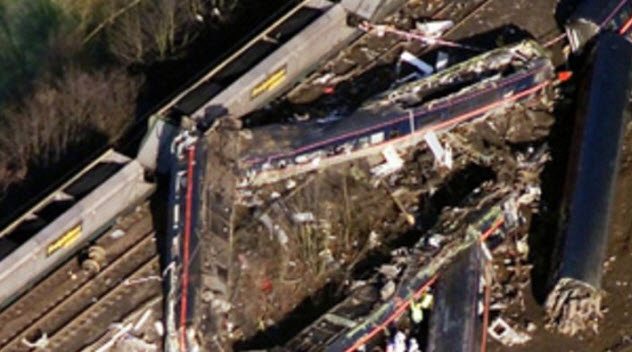Some of the world s worst disasters were caused in part by sleep deprivation

Some of the world’s worst disasters were caused, in part, by sleep deprivation.

Sleep is an essential part of our daily lives, allowing our bodies and minds to rejuvenate and recharge. However, when sleep becomes compromised due to various factors, the consequences can be dire. In fact, some of the world’s worst disasters have been attributed, at least in part, to sleep deprivation.
One such disaster took place in 2001, known as the Great Heck Rail Crash in the United Kingdom. This tragic event occurred when a train derailed after colliding with a Land Rover that had entered the tracks. The driver of the Land Rover, Gary Hart, had fallen asleep at the wheel due to chronic sleep deprivation. His lack of rest caused him to miss warning signs and barriers, resulting in the collision. The accident claimed the lives of ten people and injured many more.

Another notable example is the Challenger Space Shuttle disaster in 1986. The Challenger Shuttle was set to launch, carrying a crew of seven astronauts. Tragically, just 73 seconds after liftoff, the shuttle disintegrated, leading to the deaths of all crew members on board. Investigation into the incident revealed that sleep deprivation and fatigue played a significant role in the disaster. The engineers responsible for the shuttle’s design and launch had worked extensive hours leading up to the mission, leading to critical errors being overlooked.
These two incidents serve as stark reminders of the detrimental consequences that can arise from sleep deprivation. But how exactly does lack of sleep contribute to such disastrous outcomes? The answer lies in the impact of sleep deprivation on our cognitive abilities and overall performance.
When we are sleep-deprived, our concentration, reaction time, and decision-making skills are severely impaired. These cognitive deficits increase the likelihood of human error, leading to catastrophic accidents. Additionally, sleep deprivation affects our ability to process information accurately and efficiently, limiting our capacity to analyze complex situations and make sound judgments.
Moreover, sleep deprivation can disrupt emotional regulation, leading to increased irritability, impatience, and poor communication. These emotional factors, combined with compromised cognitive function, create a perfect storm for disaster in high-stakes environments where split-second decisions can make all the difference.
In conclusion, sleep deprivation poses a significant risk to our safety and can contribute to some of the world’s worst disasters. The examples of the Great Heck Rail Crash and the Challenger Disaster serve as poignant reminders of the devastating consequences that can arise when individuals operating in critical roles are deprived of sufficient rest. To ensure the well-being of ourselves and others, we must prioritize and prioritize proper sleep to maintain optimal cognitive function and prevent potential disasters.
Tags
Share
Related Posts
Quick Links
Legal Stuff

